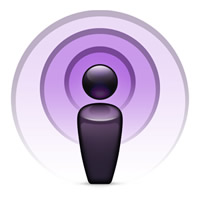Podcasting Yields Higher Scores than Attending the Lecture
 I've been fascinated by the idea that teachers could flip-flop lectures and homework. Lectures could be podcasted (and put on DVD for those without internet) and assigned as the "homework," allowing for class time to be spent on discussion, collaboration, and reteaching. In July I wrote about a pair of high school chemistry teachers who are doing this very thing with great success.
I've been fascinated by the idea that teachers could flip-flop lectures and homework. Lectures could be podcasted (and put on DVD for those without internet) and assigned as the "homework," allowing for class time to be spent on discussion, collaboration, and reteaching. In July I wrote about a pair of high school chemistry teachers who are doing this very thing with great success.
The article "iTunes University" Better Than the Real Thing in last week's New Scientist reports the findings in a study from the State University of New York called Can Podcasts Replace Professors. The study found that students who listened to podcasted lectures performed better on tests over the lecture material than students who actually attended the lecture in person.
The study used 64 Psychology 101 students. Half of the students listened to an enhanced podcast (that's showing the lecture's slides along with playing the audio). The other half were given a print out of the slides and were present for the lecture.
Students who were in the podcast group averaged a 71% while those in the lecture group scored a 64% average when tested over the material in the podcast/lecture. However, those who listened to the podcast and did not take notes scored that same as those that attended the lecture. Those in the podcasting group that took notes averaged 77%.
These results would certainly be different in a K-12 environment. But, it makes sense that when students can pause, rewind, and rewatch a lecture they learn the material better. Podcasting lecture material has the added benefit of changing what can be accomplished during class time.
